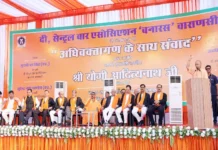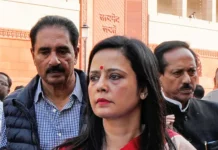
NEW DELHI: Excessive “judicialisation” of Information Commissions across the country would deprive them of a flexible style of functioning, Chief Information Commissioner Satyananda Mishra said here today.
Speaking at the Central Information Commission’s annual convention, Mishra said the approach of the Commissions, including the state and centre, in all these years has been to act like an umpire standing right on the field along with the players and not sitting on a pedestal and pronounce oracles.
“Openness of approach, informality in style and simplicity of systems have characterized the functioning of all the commissions….Excessive judicialisation of information commissions will deprive the commission of this flexibility. The society must decide if this is the right path,” he said.
The Supreme Court had recently termed the Commissions as quasi-judicial bodies and directed the government that Chief Information Commissioner at the Centre or State level should only be a person who is or has been a Chief Justice of the High Court or a judge of the Supreme Court of India.
Asking the government to amend the RTI Act, a bench of justices A K Patnaik and Swatanter Kumar had said that people from judicial background be also appointed as members of the Central and State Commissions which is to be done after consulting with the CJI and Chief Justice of the respective High Courts.
Mishra said the efforts of the Commission to ensure complete mandatory disclosure by public authorities have not succeeded.
“All our efforts to ensure proactive disclosure as mandated under the RTI Act have been ineffective. Seven years after the enactment of the law, public authorities both at the state and the Centre, have not made complete disclosures which they were mandated to do in 120 days,” the CIC said.
He said the efforts to ensure organized record keeping as mandated in the law have not been met with much success.
“We have been exhorting government authorities both at the Centre and the states to appoint responsible information officers, train them regularly and most importantly to organize record keeping at all levels. We have not met with much success,” Mishra said.
The CIC said in the last seven years since the RTI Act came into being, the civil society attention has moved to new issues areas of concerns, consequently there is palpable decline in their engagement with issues related to right to information which was true for media as well.
He said media and civil society must not lose sight of the RTI Act in the process.
“Bulk of information received from public authorities is used for personal grievances. Many a times, information is also sought without any ostensible purpose. This is not a happy sign. Each time we seek any information from any public authority, we deprive someone else of the opportunity to make use of corresponding resources,” he said.
Mishra said there are several instances of people making absolutely frivolous request or seeking information as a hobby or just to harass and blackmail others.
“It should be avoided not only it gives bad name to RTI Act but also because it increases wasteful expenditure of public authorities. Civil society should play an important role in this by training the RTI applicants,” he said.
-PTI






